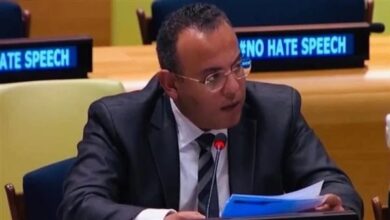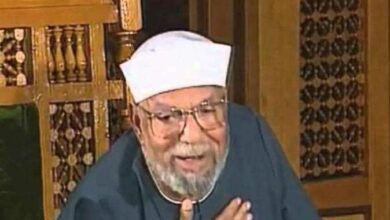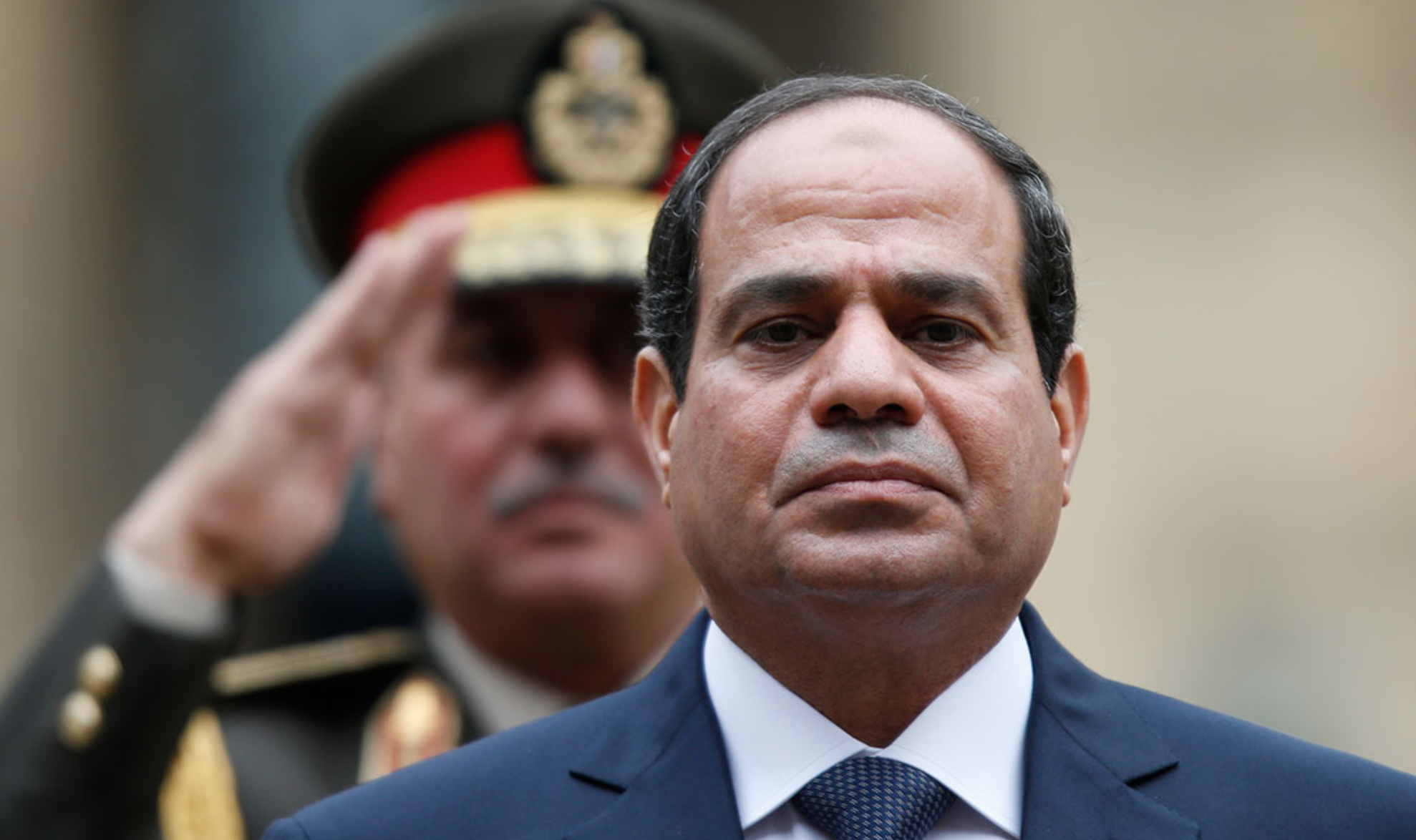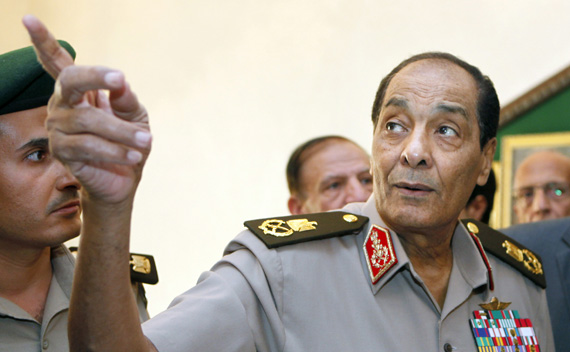Al-Masry Al-Youm spoke with Hassan Nafaa–political science professor at Cairo University and coordinator of the popular campaign against presidential "inheritance"–about upcoming elections, the state of the opposition and the prospects for bona fide political change.
Al-Masry Al-Youm: What do you predict for Egypt’s 2011 presidential election?
Hassan Nafaa: The 2011 election will be entirely different from the 2005 election. Before the constitution was amended, the People’s Assembly used to nominate a president, and then a popular referendum was conducted to approve the nomination. The constitution didn’t allow for direct elections and the vice president was usually nominated for the presidency.
Since the 1956 revolution, Egyptians got used to seeing the president remain in power until he either dies or is assassinated. There was already a kind of inheritance of power because the president used to select a vice president who would later become president.
Then Article 76 of the constitution was amended, but the prevailing political conditions were totally different from those of the past. The amendment was introduced in the absence of a vice president, and in light of the rise of Gamal Mubarak and talk of the inheritance of power.
Al-Masry: Are you for or against the appointment of a vice president?
Nafaa: I’m for appointing more than one vice president. A vice president is supposed to learn how to manage the country’s affairs, or at least gain political experience. But the existence of a vice president will not in and of itself solve the problems of the current political regime, because the Egyptian regime is so introverted and doesn’t allow any progress towards democracy.
Core amendments need to be introduced to the constitution so as to allow genuine pluralism and permit political parties to produce political leaders and carry out their activities.
Al-Masry: What, then, will upcoming presidential elections be like?
Nafaa: The election will be carried out according to the stipulations of the constitution and of Article 76, which legal experts have described as "a constitutional sin." It’s the worst article in the constitution and was formulated to serve a particular purpose.
Most Egyptians believe this article was amended to disbar all but the ruling National Democratic Party (NDP)’s presidential candidate.
Al-Masry: But it does allow some opposition parties to nominate candidates, no?
Nafaa: If political parties did actually represent all of Egypt’s political trends and social categories, and if all political powers were allowed to form parties, there would be no problem. But political parties are repressed, and the NDP controls the formation of new parties and essentially restricts presidential nominations to political parties–so entire political trends are being excluded from the right to field candidates. What’s more, the state intentionally interferes in parties’ internal affairs to the point of almost ruining them from within.
I’m not defending political parties, nor do I want to say that the weakness of political parties is entirely the responsibility of the state. There are, admittedly, some defects in the structures of those parties and in Egyptian political culture.
I believe that the difficulties involved in forming political parties have exacerbated their internal conflicts. Had those rifts been due to purely ideological reasons, they would have resulted in the formation of new parties, thus enriching political life.
Al-Masry: Could the 2005 elections be described as having had integrity?
Nafaa: Not at all. The 2005 elections tightened the regime’s grip on power, while the candidate who came in second was sent to prison. Some say that he committed a crime, while others call him a political prisoner. But his "crime" was only discovered after elections were over.
Al-Masry: Do you think the NDP candidate will most likely be the next president?
Nafaa: Not only is the NDP candidate "likely" to win, he is certain to become the next president.
Al-Masry: Who do you think the NDP will nominate?
Nafaa: The NDP isn’t announcing its candidate now. There are those who want Gamal Mubarak to become president by any means–be they honest or dishonest. If the NDP nominates Gamal Mubarak under the current conditions, he will become president.
Al-Masry: If the NDP candidate turns out to be Gamal Mubaak, will this represent a form of "inheritance" of power?
Nafaa: Yes. Hosni Mubarak has ruled Egypt for five terms of six years each. That brings the total number of years he has ruled Egypt to 30. If he stays for another term, he will have ruled for 36 years. This is the longest anyone has ever ruled Egypt since Ramses II.
The fact that one person has ruled the country for 36 years affirms the regime’s undemocratic nature. Besides, Mubarak will be pushing 90 by the end of his sixth term. Will he be physically up to running the affairs of the country? Or will Gamal Mubarak be running the show from behind the scenes?
It’s as if Egypt’s destiny is to be ruled by the Mubarak family. This is called blood inheritance. The way is being cleared to change the regime from a republic to something more akin to a kingdom.
Sudan is threatened with disintegration, the Arab-Israeli conflict continues unabated, and Israel is attacking Hamas on the border. Egypt is besieged on its eastern and western frontiers. What’s more, services provided to the Egyptian public are deteriorating, while corruption remains rampant–since corruption and despotism are inextricably linked.
When fresh blood is injected into the equation, there’s always a better chance to eliminate much of the corruption. When a ruling elite stays in power for 30 or 36 years, society necessarily becomes stagnant and corruption ubiquitous. The Egyptian regime has no intention of introducing change, because the current regime is authoritarian–it is different from the July 1952 regime in appearance only.
Al-Masry: Do you think the opposition can agree on a single candidate to oppose the NDP’s nominee?
Nafaa: No, that’s impossible. As it currently stands, political parties can’t nominate candidates from within. They just won’t be able to agree on one.
Al-Masry: Do you think there are members of the Al-Wafd and Al-Tagammu parties that could be nominated?
Nafaa: There are members from Al-Wafd and Al-Tagammu who certainly have the ambition. But they’re perfectly aware that they will merely be part of the democratic décor; that they will have no real chance of winning the elections.
Al-Masry: How are the opposition parties handling the current situation?
Nafaa: There are political parties led by figures that are long used to making deals with the state. The NDP will be able to persuade these parties to put forward a candidate in order to make the election process look more credible.
The problem with political parties in Egypt is that they can’t reach a consensus on anything. Introducing peaceful change requires that the opposition win a majority of seats in the People’s Assembly, or nominate a presidential candidate capable of defeating the NDP candidate.
Al-Masry: Can Ayman Nour nominate himself?
Nafaa: He wasn’t barred from participating in politics since he’s still a member of the Al-Ghad Party.
Al-Masry: Do you think he has any chance of winning?
Nafaa: Nobody can defeat the NDP candidate. Even if the opposition agrees on one candidate–be it Ayman Nour, Refaat el-Saeed or Mahmoud Abaza–they still can’t win. They are all viewed negatively by much of the public, either because of their constant attacks on the Muslim Brotherhood or because they’ve been involved in severe internal party conflicts, like Mahmooud Abaza and Nomaan Gomaa.
Al-Masry: What, then, is the alternative?
Nafaa: Prominent figures, such as Mohamed ElBaradei, Ahmed Zewail and Amr Moussa–or any other figure that is publicly accepted and can boast important achievements.
Al-Masry: What did you make of ElBaradei’s "conditions" for running?
Nafaa: His conditions sent a message to the regime–and to the whole world–that there are no guarantees when it comes to the integrity of legislative and presidential elections. The significance of ElBaradei’s statements lies in the fact that they served the anti-inheritance campaign. Without giving names, he said that the coming president would be a Mubarak–either father or son.
He was attacked by the regime and the official press for his statements. ElBaradei–who has been honored both locally and internationally and who has led one of the world’s most important organizations–suddenly came under bitter criticism. This either means the regime is very weak or is morally corrupt.
Al-Masry: What’s the solution?
Nafaa: The opposition must agree on some important figure, such as ElBaradei or someone else with a popular base.
Al-Masry: Do you mean the Al-Wafd party?
Nafaa: Regardless of party, my point is that this is the only method of introducing change–and it hasn’t yet been exploited. We still have one year before elections are held. If the current state of political mobility persists, then the opposition might achieve power.
The only way to introduce change is if the opposition agrees on one candidate to run in the presidential election, which will be held after legislative elections. Also, the legislative elections should give us an idea of what the presidential election will look like.
Al-Masry: Who do you think stands a better chance, ElBaradei or Amr Moussa?
Nafaa: ElBaradei, because he’s aware that he could be the man to lead the way towards change. By this I mean that he won’t cling to power, and won’t seek another term.
He has to change the current political system, with all its restrictions on political parties, and change the notorious electoral law to allow the diverse political powers to do their work. Then he should change the constitution.
By the end of that transitional period, he will have prepared the country for a new stage.
Al-Masry: What stand do you think the Muslim Brotherhood will take regarding the election?
Nafaa: The brotherhood has members in the anti-inheritance committee, alongside other parties. Al-Wafd and Al-Tagammu aren’t members of the committee, though. Al-Tagammu rejects the Muslim Brotherhood and Al-Wafd rejects Ayman Nour.
Nevertheless, we’ll maintain contacts with both of them, because we’re trying to raise the awareness of Egyptians about the dangers of presidential inheritance. If they support the notion of presidential inheritance, they should announce it. If not, then we can coordinate our actions.
At some point, all powers will have to work together to change the current political regime. This can only be achieved if opposition forces agree.
They don’t have to agree on the image of their ideal society, only on that of a new political regime in which everyone can participate–including the brotherhood and all other political powers.
Al-Masry: Some have recommended proposing a political platform before the names of possible presidential nominees are tabled.
Nafaa: That would be very detrimental. Putting forward a platform would mean tackling issues that touch on social justice and the relation between religion and state–both of which will only give rise to disputes.
Al-Masry: Other than ElBaradei, is there a figure that could be unanimously agreed upon by the opposition?
Nafaa: There are lots of competent figures in Egypt. I don’t want to give names because that’s not the right thing to do at present.
A likely candidate for the presidency will certainly emerge from outside local opposition circles, enjoy a degree of international and domestic recognition, and won’t be perceived as a threat by any foreign countries. This is the kind of person needed in such critical times.
Al-Masry: Do you think the West is interfering in any way in Egypt’s presidential election?
Nafaa: We don’t want them to interfere since this will only serve the interests of the NDP. We even agreed that organizations based outside Egypt shouldn’t attend our campaign meetings.
Al-Masry: How does the West view the situation so far?
Nafaa: The West is alarmed. It’s aware that the Egyptian political regime is corrupt, tyrannical and has no future. If the opposition agrees on a single respected figure, welcomed by the West and trusted internally and externally, this will allow us to sidestep any political turmoil.
The West is afraid that if the current despotic regime remains in power, chaos will ensue and eventually bring the military to power. If Gamal Mubarak becomes president, much of the public will feel they’ve been deceived for 20 years, and the situation might explode.
Translated from the Arabic Edition.




